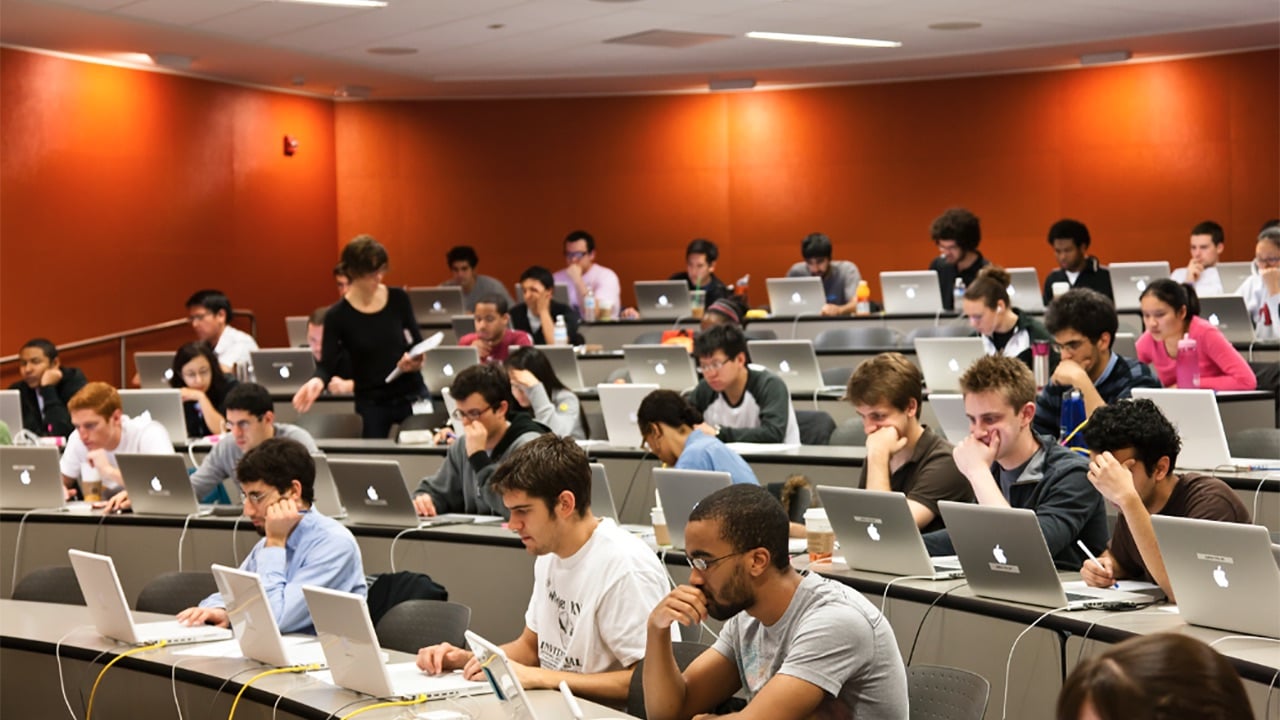
Image byStanford University, from Flickr
AI exam submissions can go undetected
A University of Reading study raises concerns about the use of Artificial Intelligence (AI) in online assessments, highlighting its potential to undermine academic integrity.
The study investigated the ability of AI-generated responses to bypass detection of university examinations. Researchers injected 100% AI-written submissions into online exams across various modules in a psychology degree program. The results were reported a staggering 94% of these AI-generated submissions went undetected.
These AI submissions not only bypassed detection but also outperformed real students, consistently achieving top grades (2:1 to 1st class). This means that the AI wasn’t simply mimicking student responses; it demonstrably excelled at answering exam questions.
Existing AI detection tools proved unreliable, with a high rate of false positives and negatives.This means they might flag genuine student work as AI-generated while simultaneously allowing AI submissions to pass unnoticed.
Across all modules, only 6% of AI submissions were flagged as potentially non-student work, with some modules not identifying any suspicious submissions. “On average, the AI responses gained higher grades than our real student submissions,” Scarfe noted, although the results varied among modules. The study showed an 83.4% likelihood that AI submissions would outperform those of students.
A separate study predicts a significant increase in the adoption of AI educational technology. fundamentally changing how we teach and learn. As reported by Reuters, ChatGPT has become the fastest growing user application in history, reaching 100 million active users within a few months of launch in late 2022. Hayder Albayati’s research highlights ChatGPT’s potential to personalize learning through question answering, assignment feedback, and even generating educational content.
Studies have shown that personalized learning can significantly improve student outcomes. When students engage with content relevant to their interests and abilities, they are more likely to develop a deeper understanding of the subject. For example, when a student submits a response, the model analyzes it and provides feedback customized to their understanding. This feedback helps identify areas needing additional support or demonstrating mastery. Furthermore, these models generate personalized learning plans based on performance and feedback. Additionally, On-demand support is crucial for effective learning, especially for independent or online learners.This flexibility accommodates busy schedules, ensuring students receive the help they need to succeed.
Another study concludes that ChatGPT can significantly enhance student productivity. This language model aids students by offering valuable information and resources, improving language skills, facilitating collaboration, increasing time efficiency and effectiveness, and providing support and motivation.
However, this very functionality makes it a tempting tool for students seeking an unfair advantage, especially in unsupervised online exams.
AI in education offers a double-edged sword. While it can personalize learning and boost engagement, the University of Reading study highlights a critical issue demanding attention. As AI in education continues to evolve, robust safeguards are needed to ensure the integrity of online assessments and protect the value of genuine student achievement.


 Previous Story
Previous Story

 Latest articles
Latest articles 

Leave a Comment
Cancel